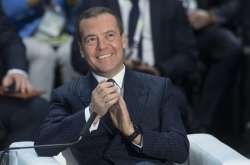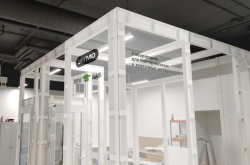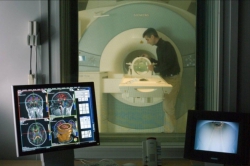This time, the four-day session took place in the Verkhnie Mandrogi nature reserve on the Svir River, and was organized by the Agency for Strategic Initiatives, the Leader Club of St. Petersburg and the Leningrad Region, the city's administration and the Agency of Ready Solutions.
Most of the session's participants voted for the solutions proposed by the Future Factory team led by Alexey Borovikov, St. Petersburg State University's Vice Rector for Advanced Projects. Foresight Fleet's participants believe their project on creating digital virtual centers of breakthrough technological solutions design will allow to turn St. Petersburg into a Technological Supremacy Center. As of now, the deployment of Future Factories is conducted as part of the National Technology Initiative's TechNet roadmap.
"The first regional Foresight Fleet in St. Petersburg was even more successful than we expected. We've launched the ASI's foresight navigation for 2017, envisioned St. Petersburg and the region's future image in the era of digital transformation, facilitated the dialog between more than 200 executives, entrepreneurs, private and governmental companies, universities, scientists and officials, brought together 22 projects and up to 50 new initiatives," comments Vyacheslav Traktorenko, Foresight Fleet's coordinator in St. Petersburg.

When presenting the projects by the “St. Petersburg - a Global University” team, its leader, Nina Yanikina, Head of ITMO's Project Management and Innovation Department, noted that the Northern Capital now has the potential to unite its scientific and educational resources and bill itself as a global construction bureau where the educational environment created by its best universities will attract talents, so as to export human resources and technologies to different companies, cities and regions.
Thus, St. Petersburg is to become the testing site for new technological and managerial solutions. The main idea was to create a "solution construction kit and navigator" for the city and its citizens based on an open alliance of universities; a global testing area for the most promising technological, managerial and educational projects. According to Ms. Yanikina's team, the university environment is to become the main subject responsible for maintaining St. Petersburg’s competitive position at a global level. The first step to creating a common university environment will be establishing a dialog between universities so as to form a common approach to attracting new talents, as those can vary greatly.

"The Foresight Fleet showed several important results. Firstly, the University City concept truly derives from the Latin word "universus" - "turned into one" - in modern times, we can perceive it as "where science, business and society merge together", some sort of a communication hub. Secondly, the concept is definitely personality-focused. Thirdly, the key features of such a city is openness (the city as a testing site that responds to the challenges of modern society and economics), its nature as a new platform (the city as an environment and platform that provides for generation and transfer of global knowledge, the participants' self-fulfillment and increment of human resources), and anthropocentric nature (the city as the center for attracting new talents and turning them into citizens). And lastly, most start to accept the concept that universities will be the centers responsible for the city's competitive position. And that is what we are planning to continue to work with," shares Nina Yanikina.
 Nina Yanikina
Nina Yanikina
The Team for St. Petersburg's Spatial Development (led by Anton Finogenov, civic planner, urban science expert, specialist on spatial planning and professor for the International Academy of Architecture (IAA)) proposed to create a master-plan for the city's development that will include the creation of 15-20 new areas designated for different educational, artistic and technological experiments.
The Culture.Tourism.Media team (led by Denis Kotov, head of the Bookvoed bookstore chain) sees St. Petersburg's future as an open book in which every citizen can create a page about himself, his family, his favorite routes around the city, and offer his services as a guide. In a way, that would be something like Uber for city tours.
The prominent feature of Foresight Fleet 2017 in St. Petersburg was that its participants worked directly with representatives of the corresponding governmental bodies of the city. That allowed them to develop new projects in accordance with the current plans of the government, as well as introduce new initiatives with governmental support.

When summarizing the provisional results of the session's teams' work, St. Petersburg's Vice Governor Alexander Govorunov commented that the event's participants succeeded in looking beyond the horizon and getting a glance at the future. All the propositions and projects presented were ambitious yet realistic. The Vice Governor advised the teams to discuss their proposals with focus groups, so as to attract as many citizens as possible to working on the new projects.






